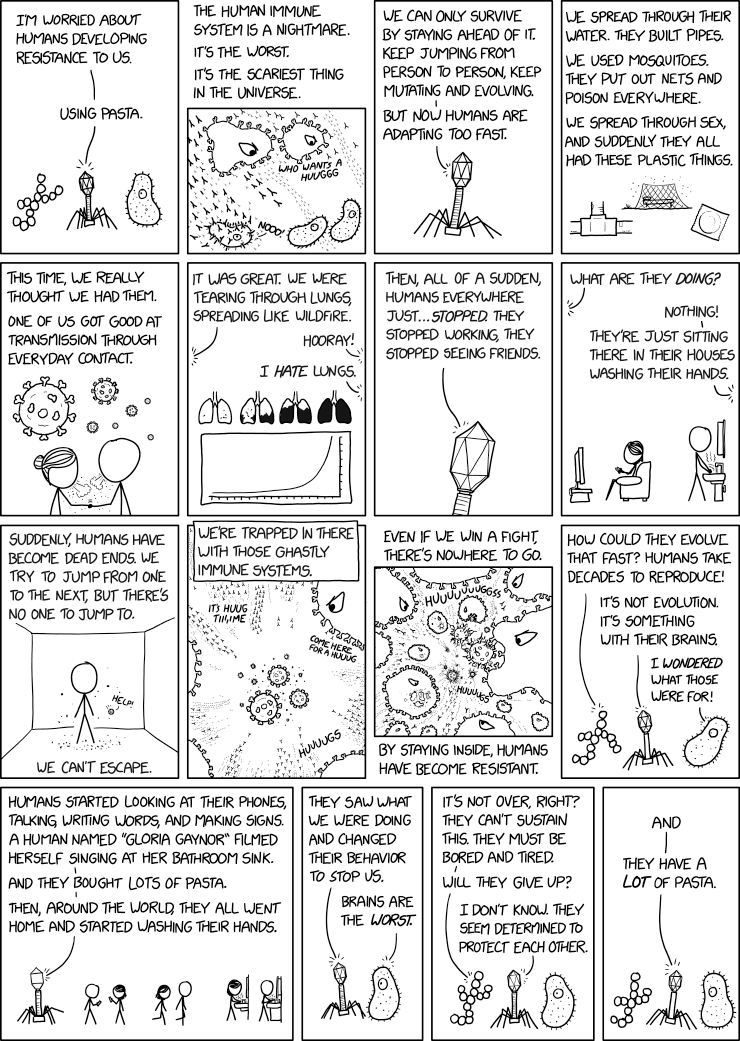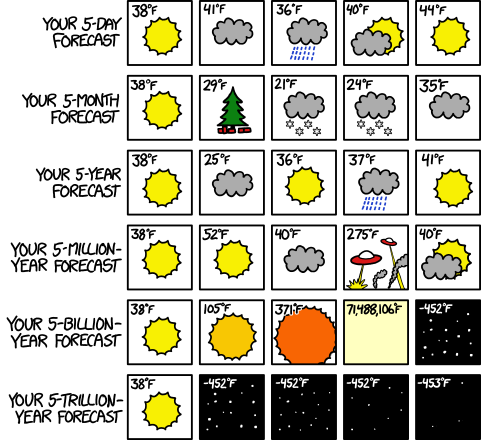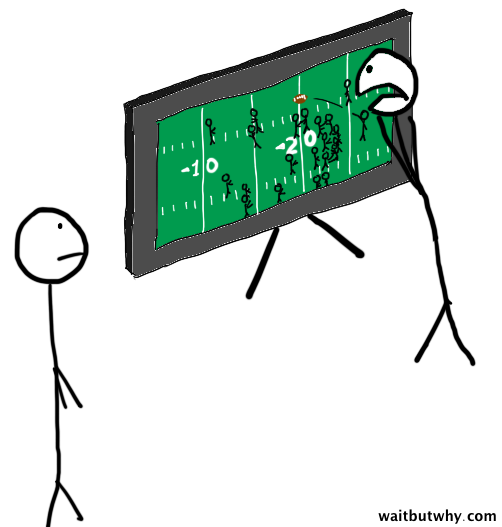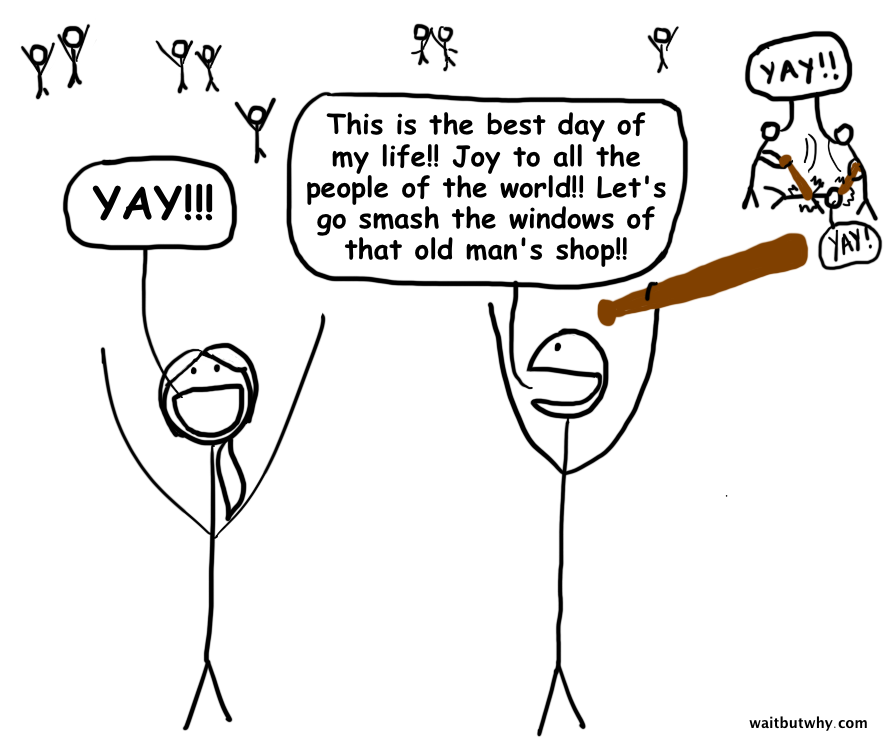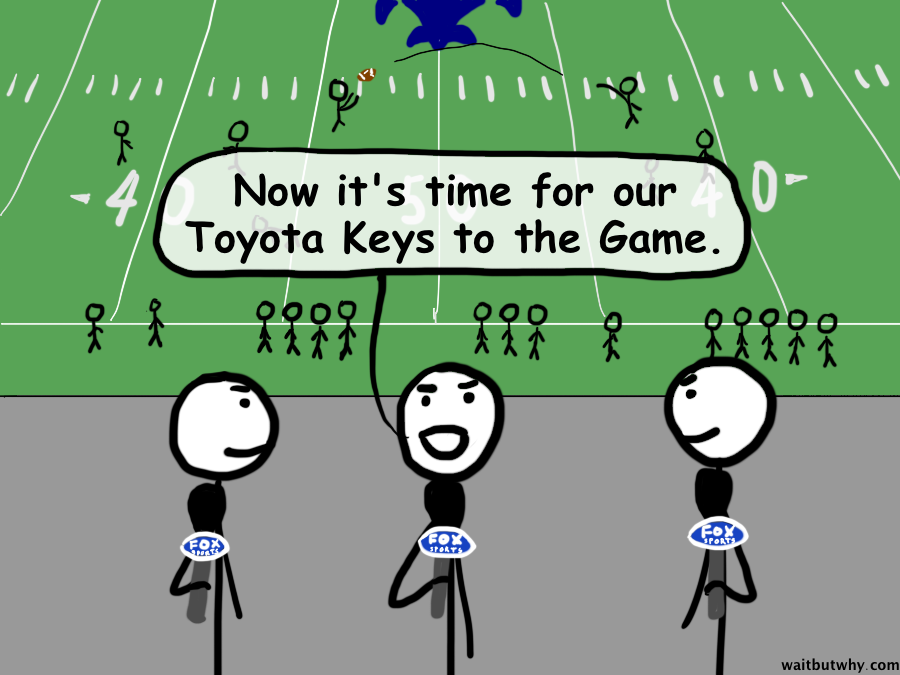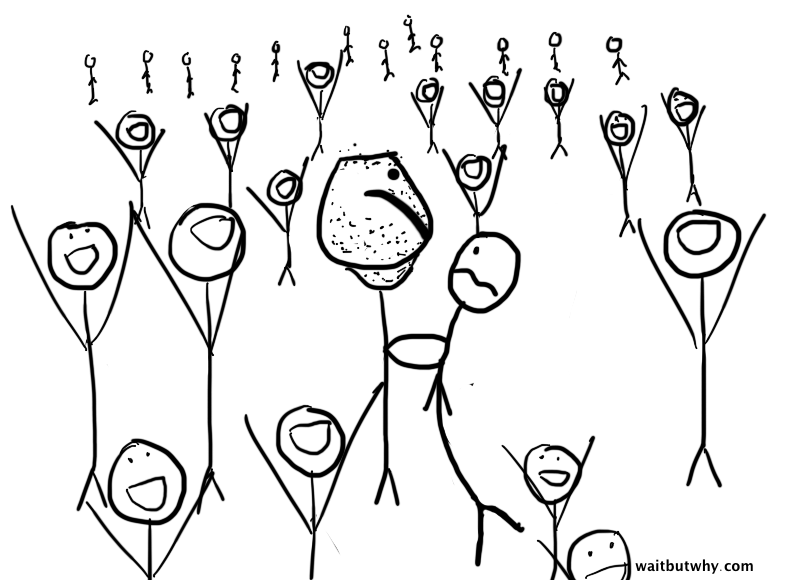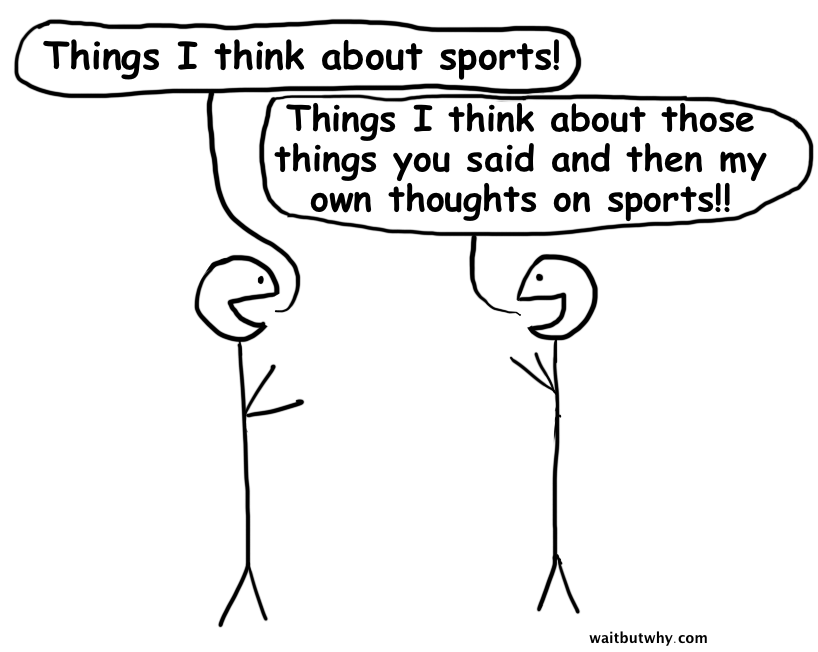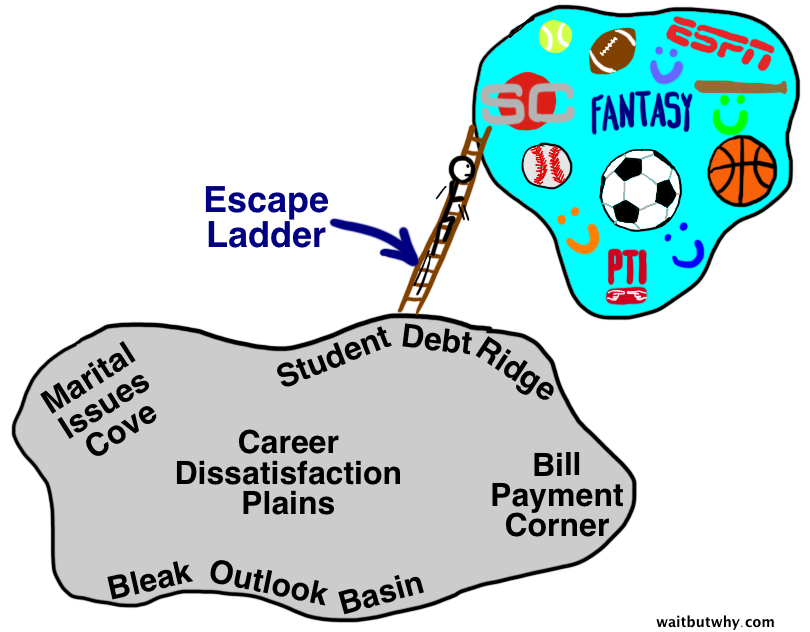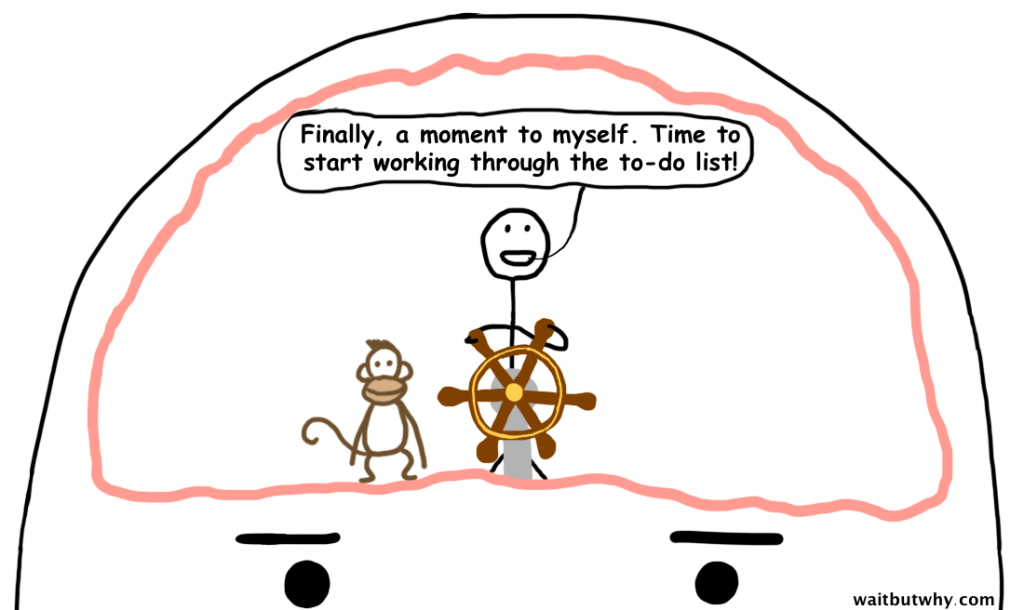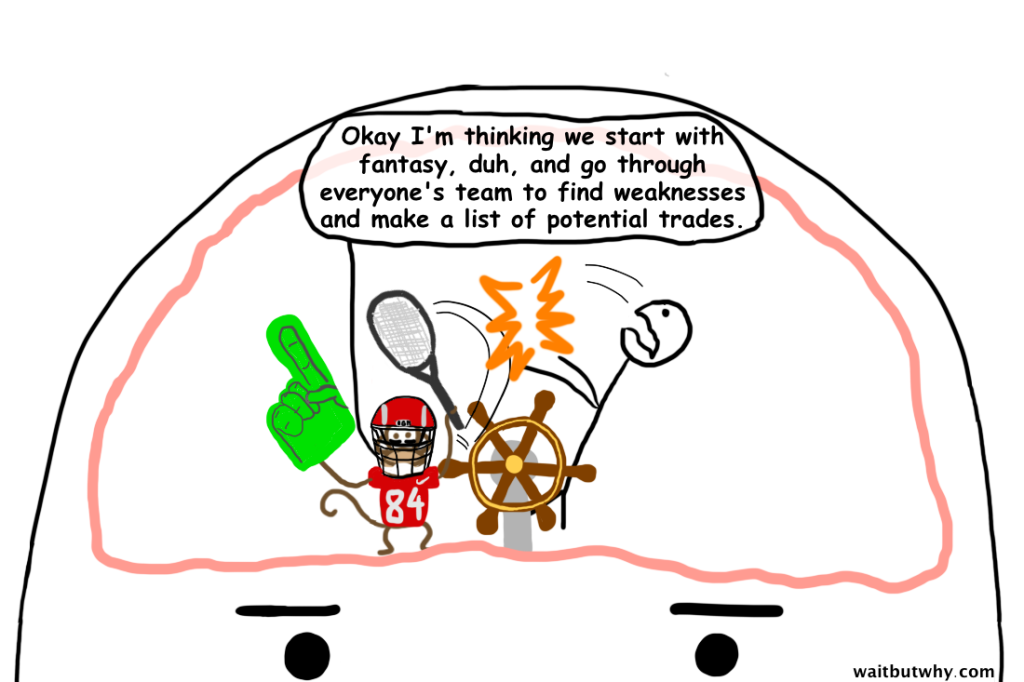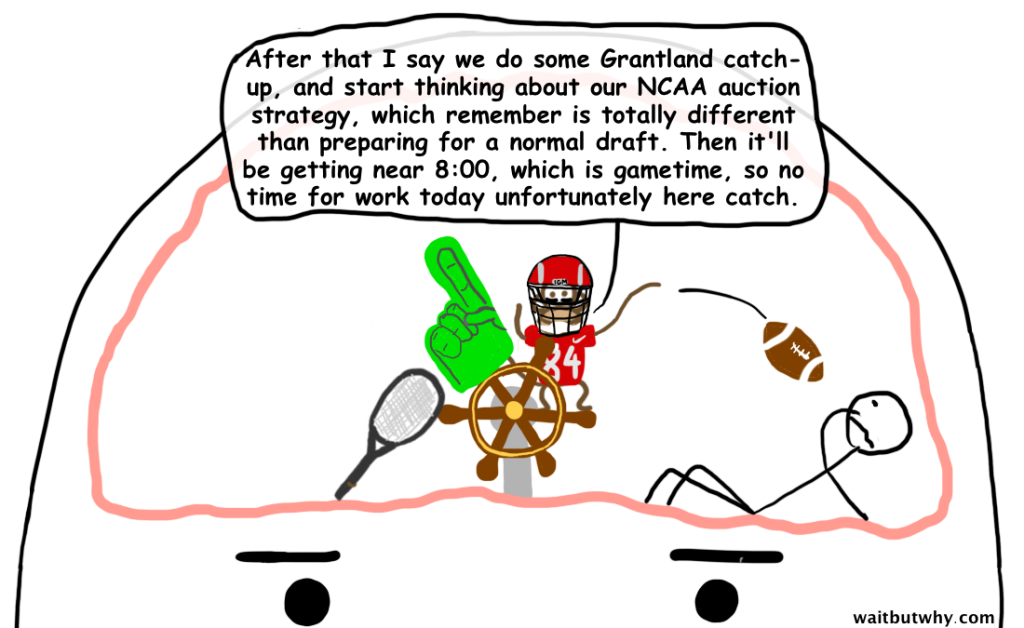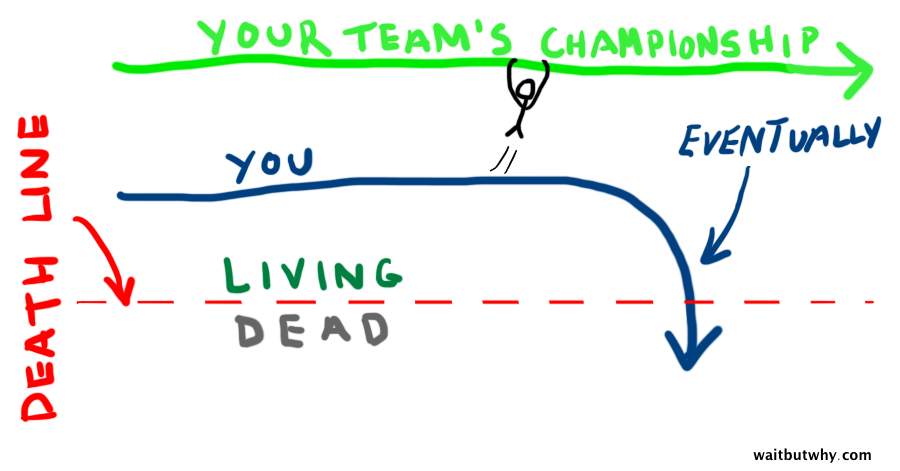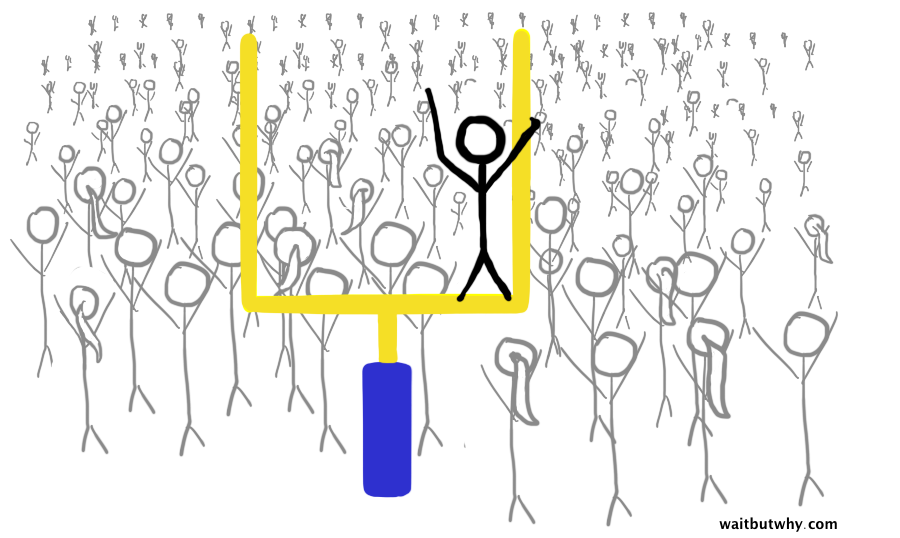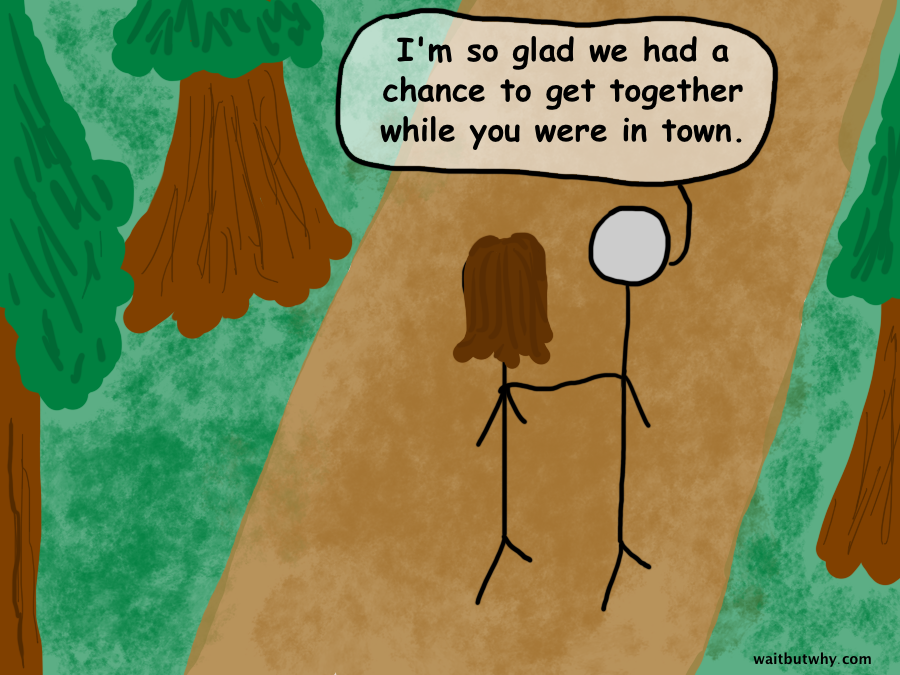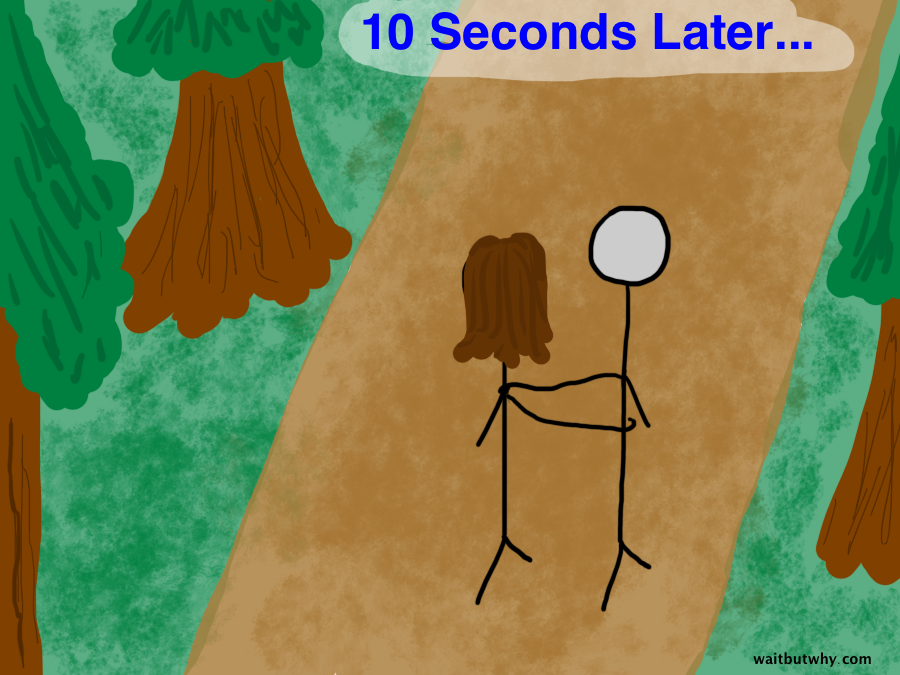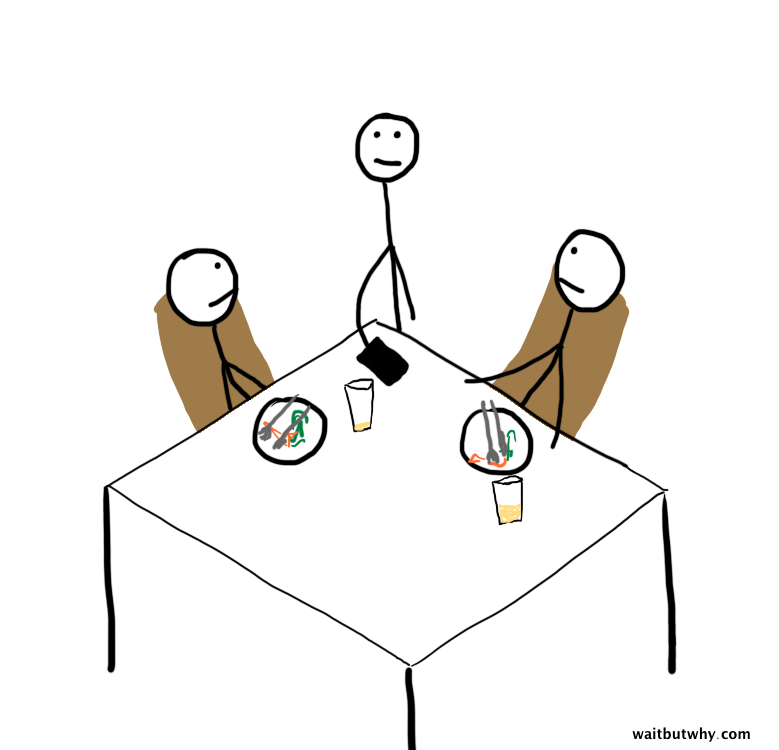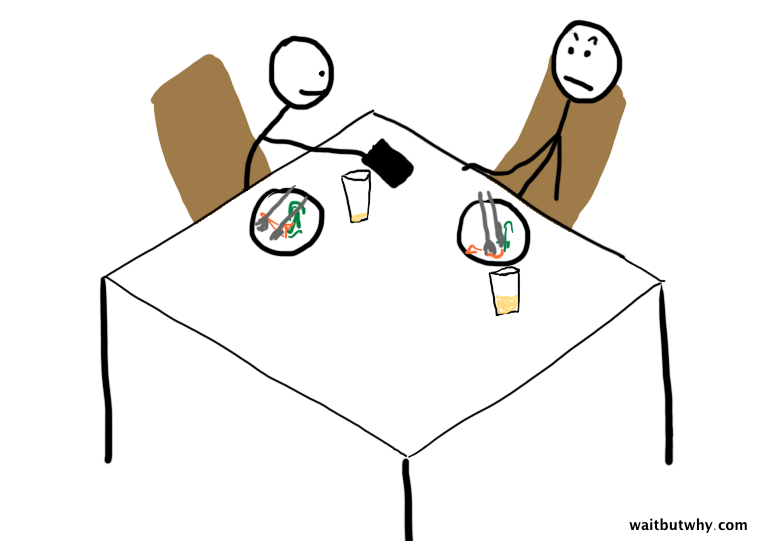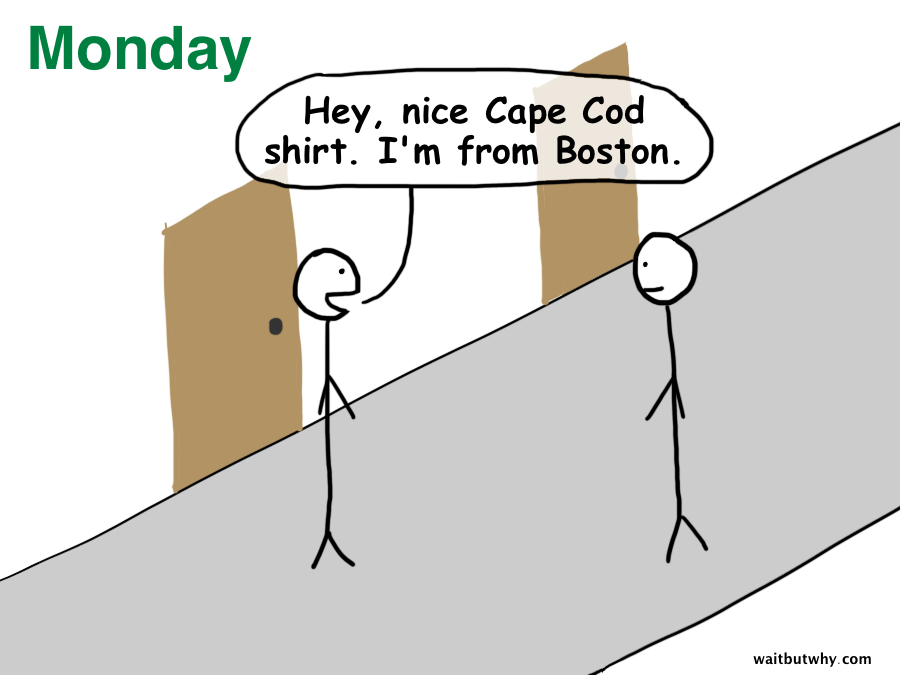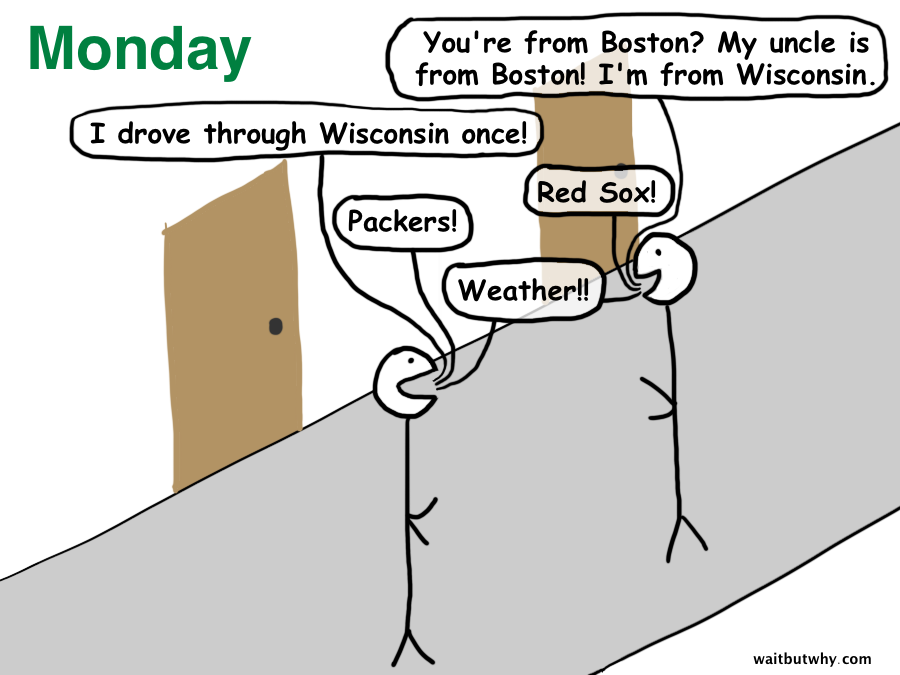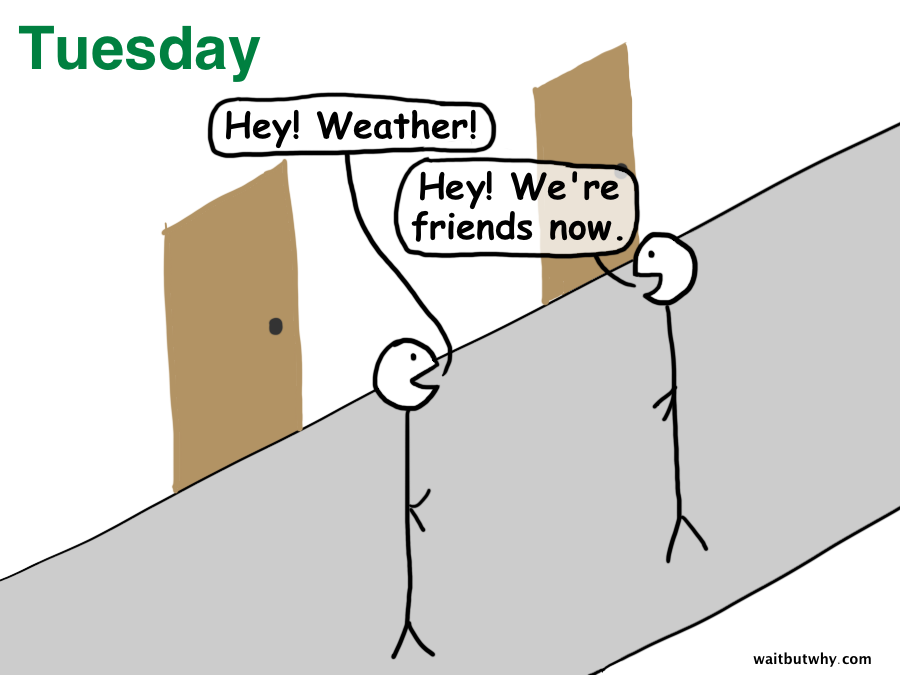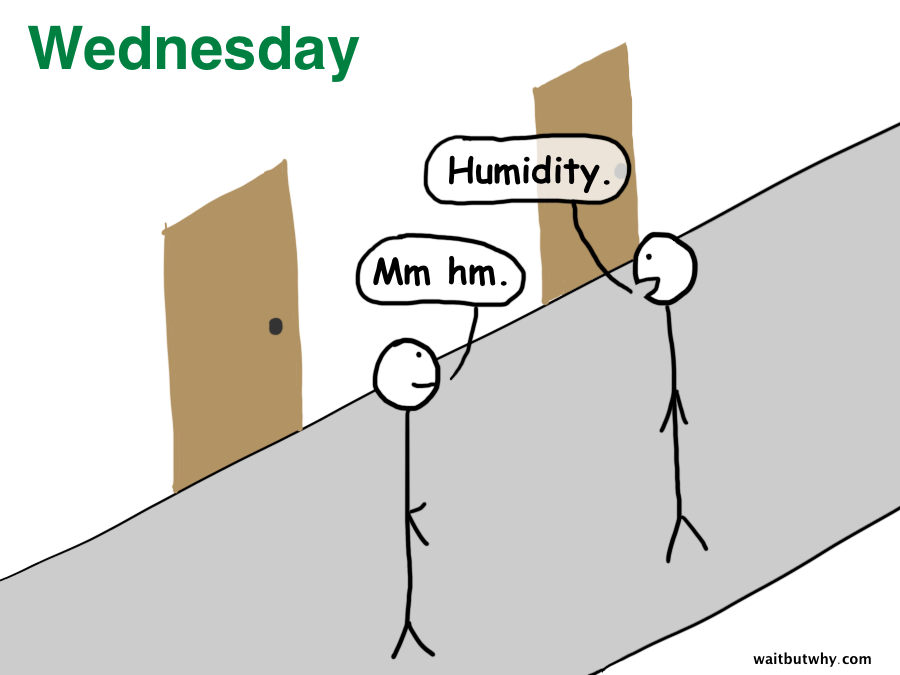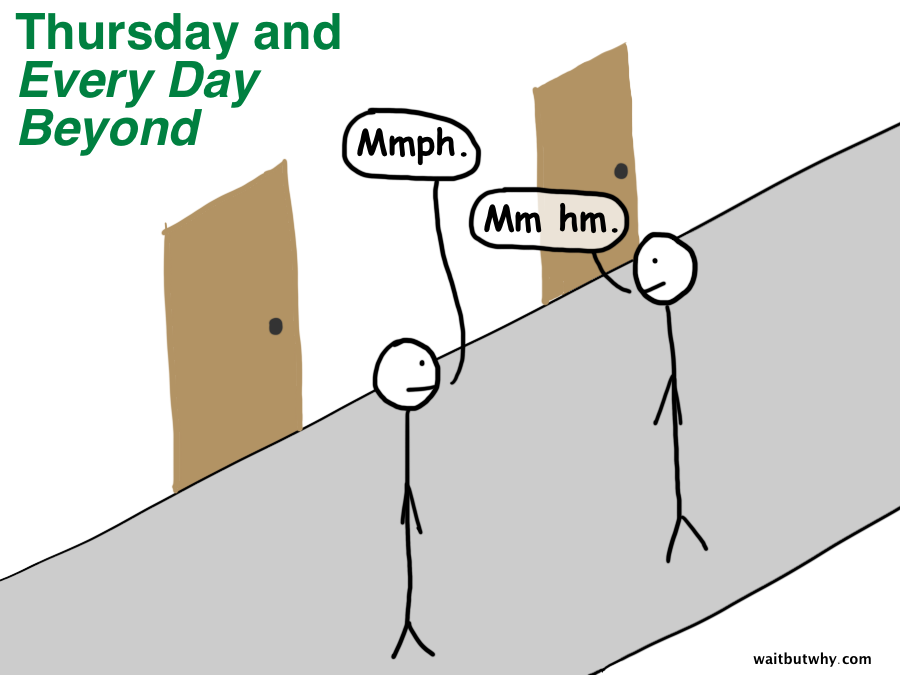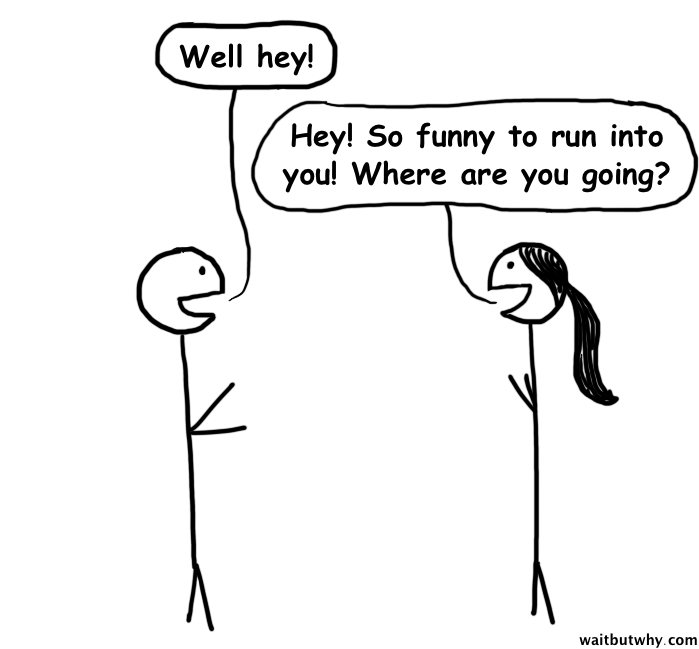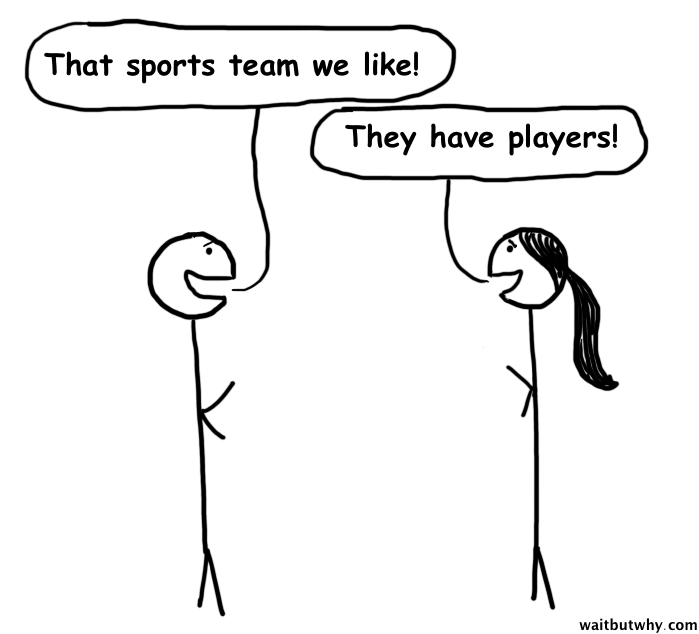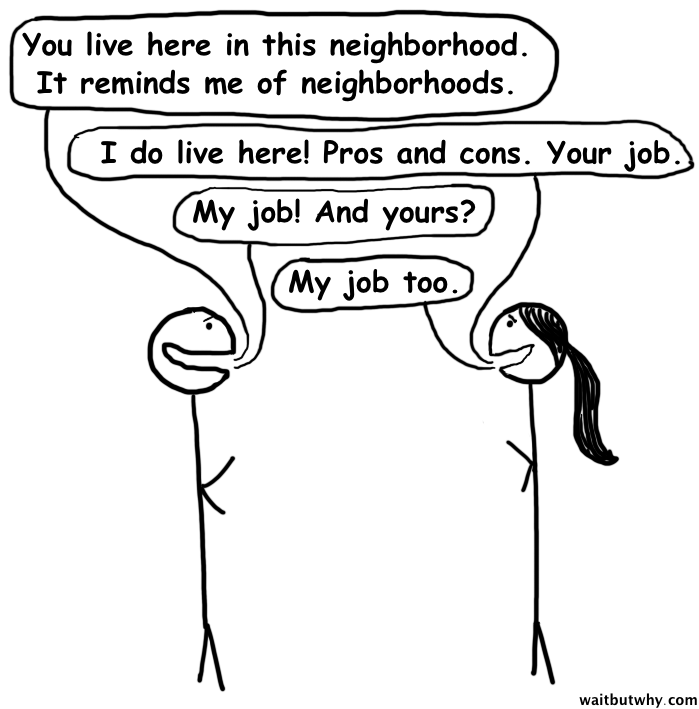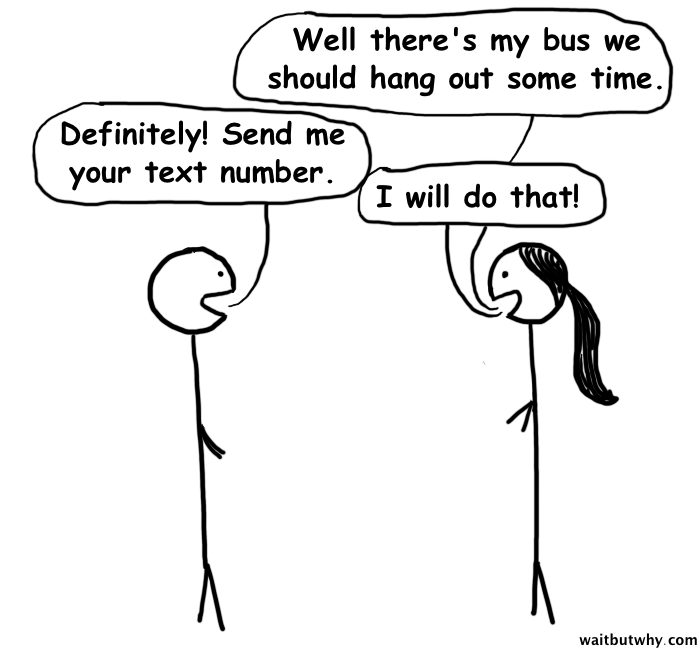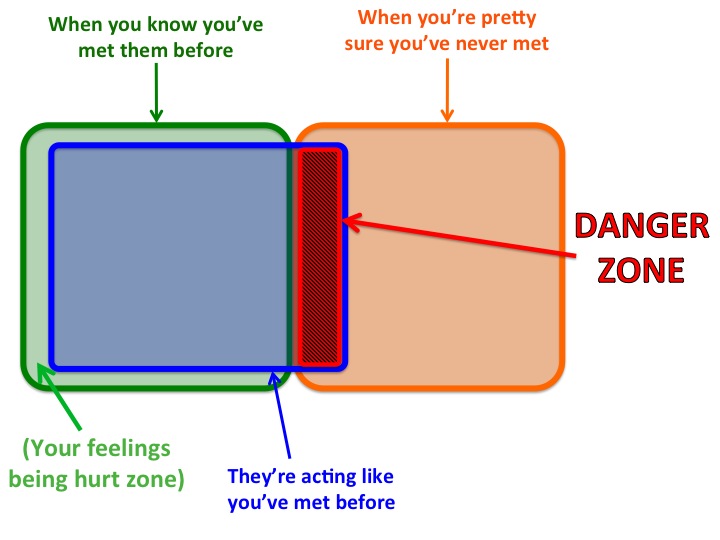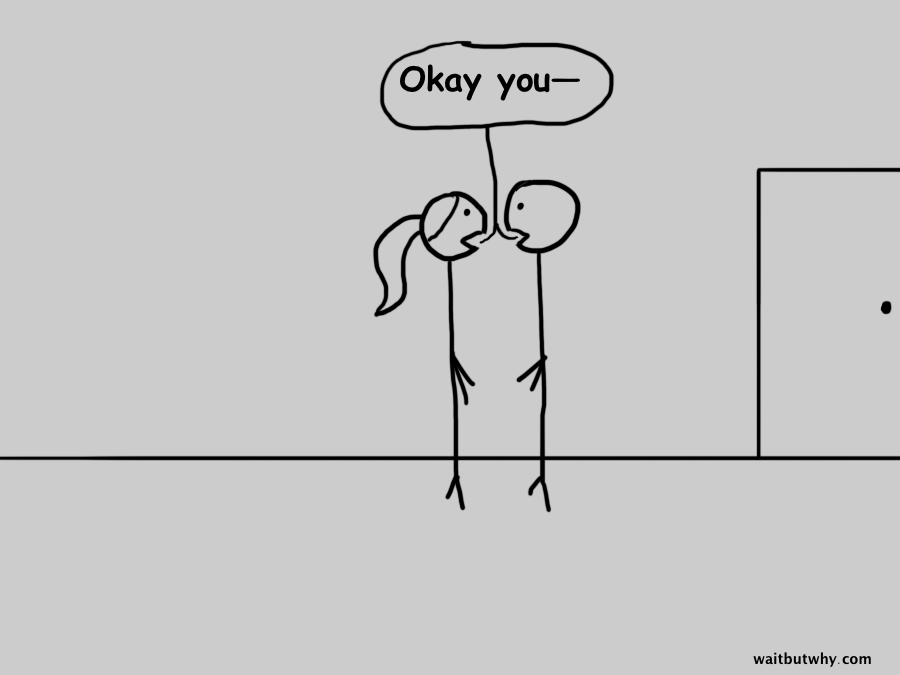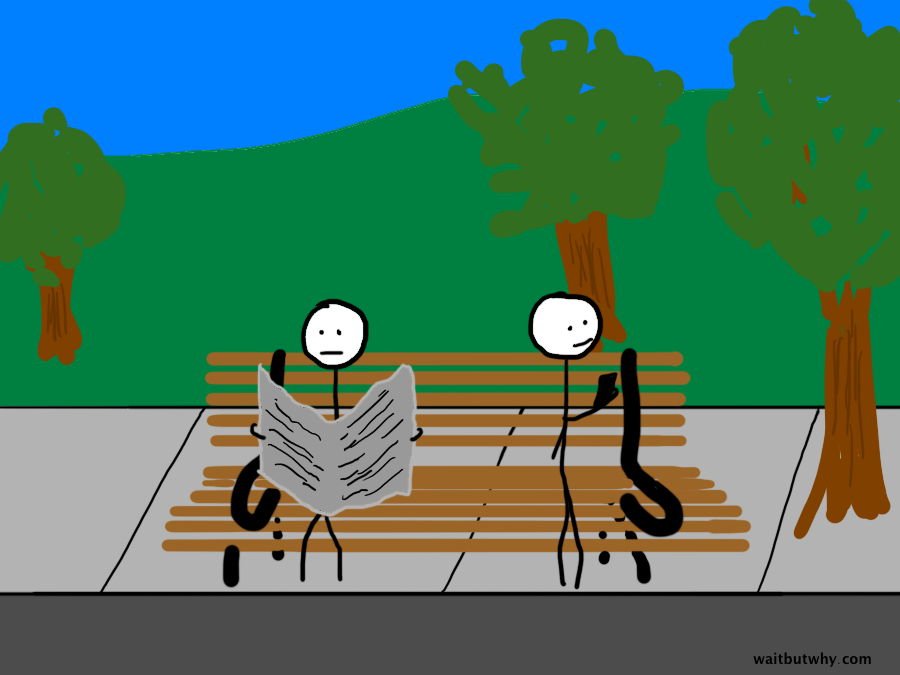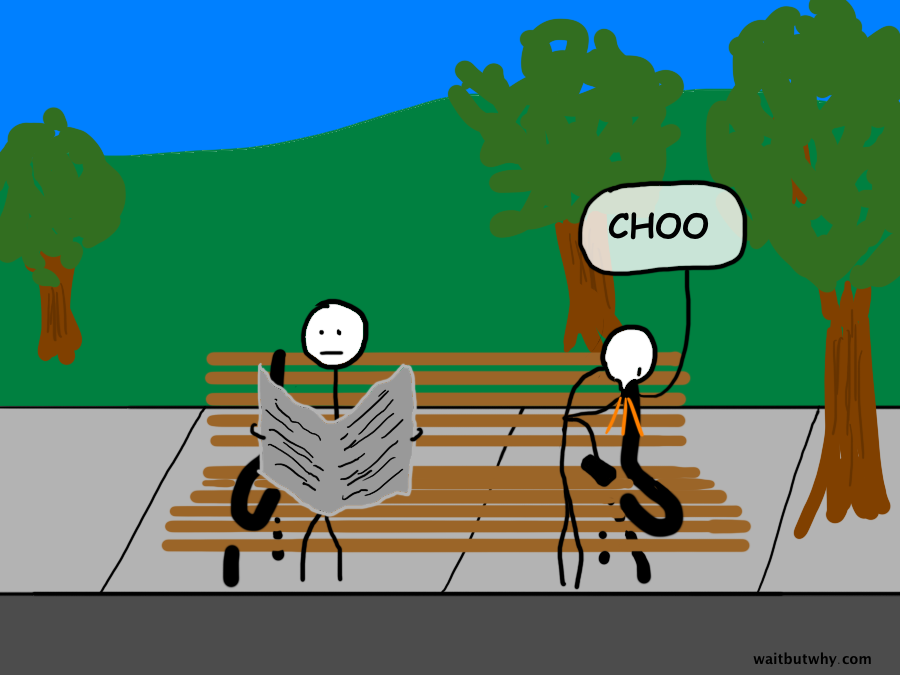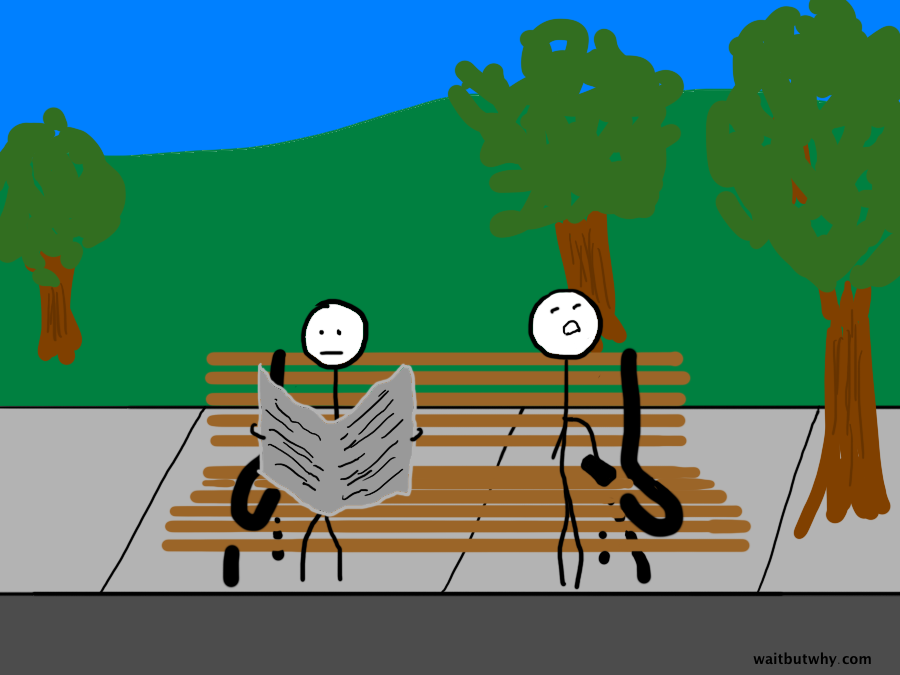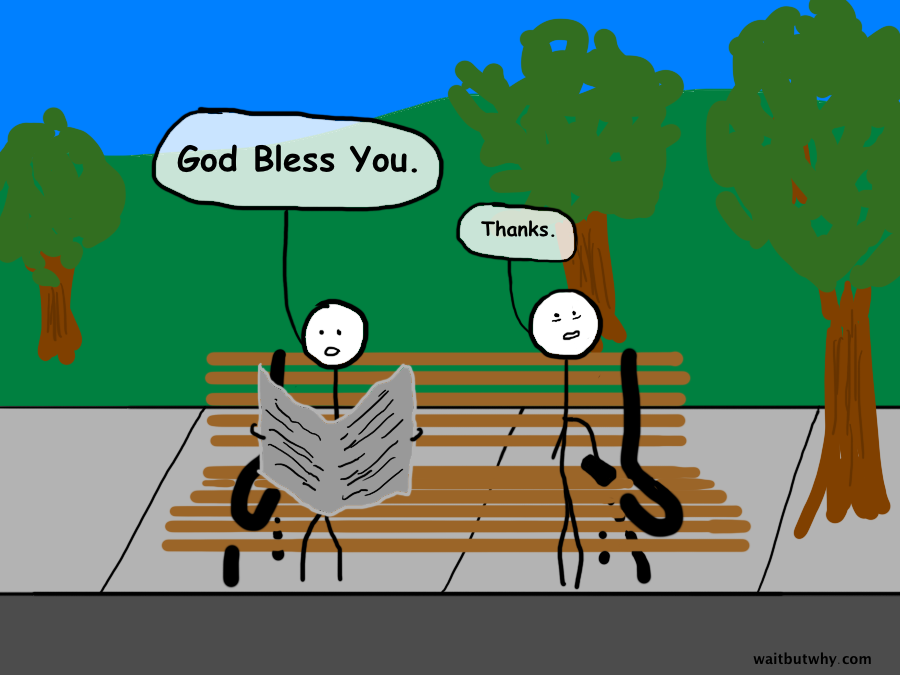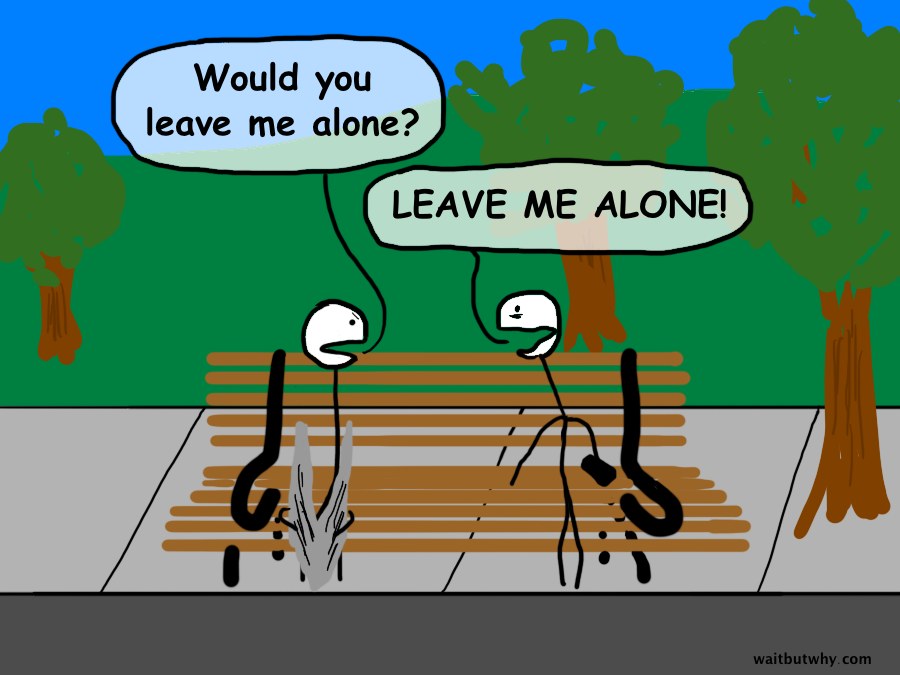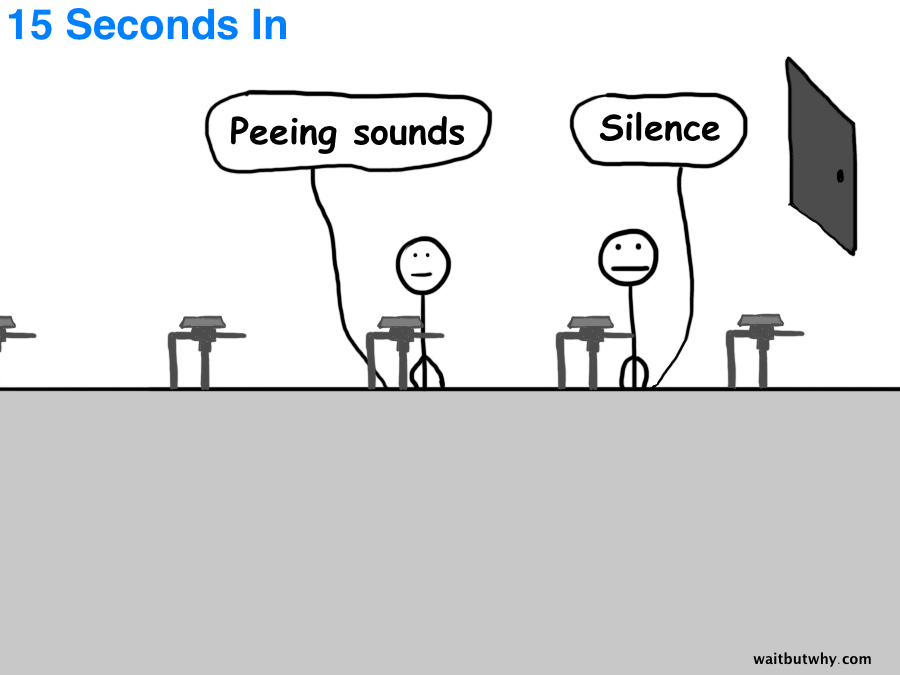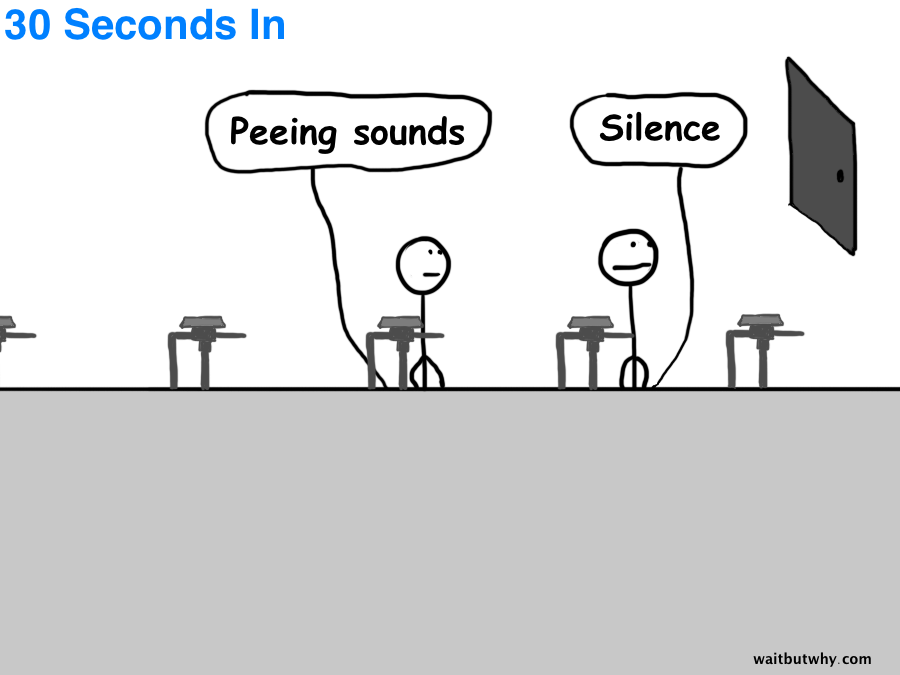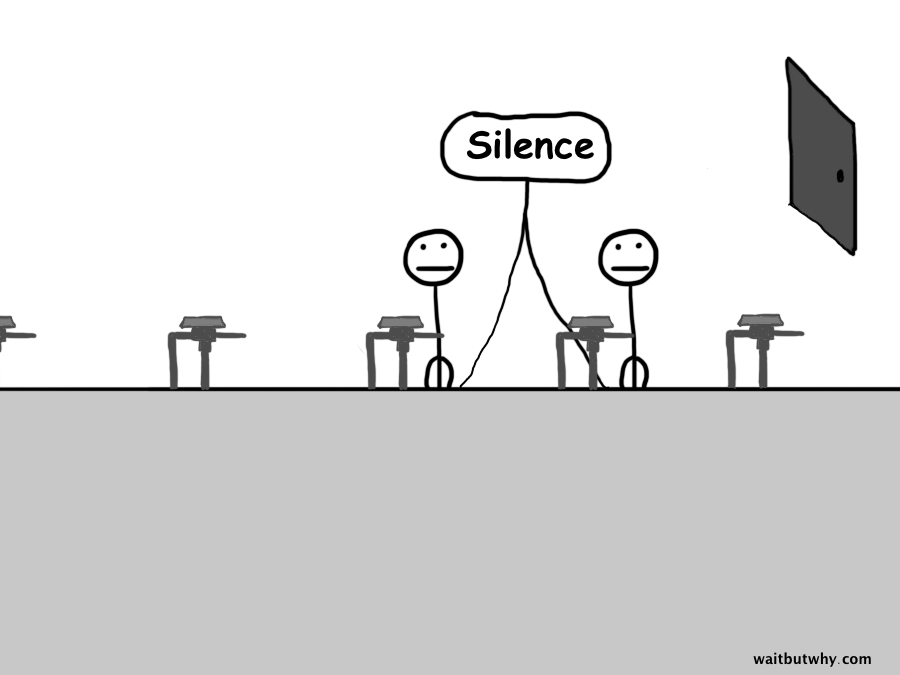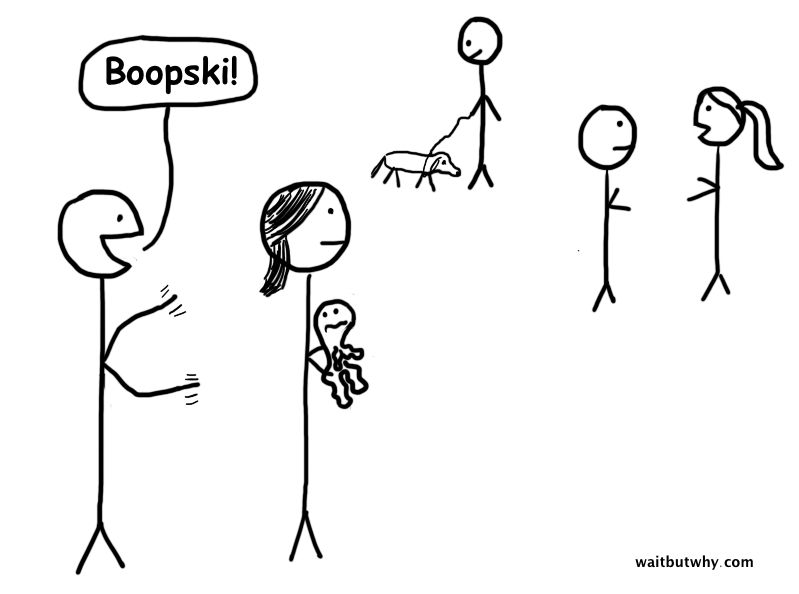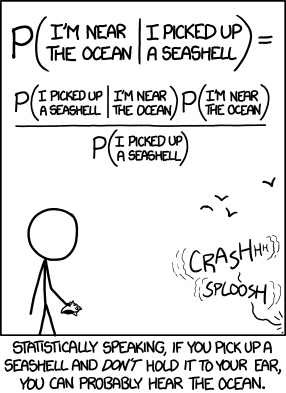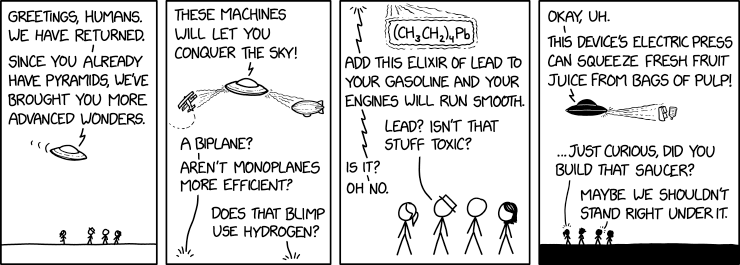
Shared posts
Five Leadership Hacks
MIT has a storied history regarding hacking where the act is viewed as a “clever, benign, and ethical prank or practical joke” at the University. Hack is also defined as the act of breaking into computers or computer networks. My definition is a combination of both.
To me, a hack is a clever or unexpectedly efficient means of getting something done. A good hack should feel like cheating because the value created by the hack feels completely disproportionate from the work done.
With this definition in mind, I present five leadership hacks I regularly use. These are not practices designed to redefine your leadership philosophy. They are hacks.
Two minutes early. For everything.
Let’s start simple. I attempt to show up for every single meeting approximately two minutes early, and it has to do with Apple. It may have changed since then or been team dependent, but the expectation at Apple was that every meeting started roughly five minutes after the scheduled start time. It was assumed. We called it “Apple Standard Time.”
If everyone is aware that “Apple Standard Time” is the standard then no big deal, everyone ends up accounting for this handy five-minute buffer. But everyone is not aware. There was no onboarding were we learned about “Apple Standard Time,” so there were not infrequent meetings where half the people showed up and stared at each other for five minutes wondering, “Where the hell is everyone?”
The origins of “Apple Standard Time” are unknown to me, but I bet it started decades ago when someone important, someone with an impressive title kept… showing… up… late. No one said anything because everyone assumed there was good reason for the tardiness. There was a reason: this leader was bad at running their schedule. Worse, this behavior was allowed to exist and – even worse – it became part of the culture.
Two minutes early. For everything. This means I look at my calendar at the beginning of the day and account for transit time. This means I gracefully leave the prior meeting five minutes before the scheduled end. This means I profusely and honestly apologize for wasting people’s time when I walk in two minutes late and this means I don’t let this failure become a habit.
The clock faces you.
Ending a meeting that is going well is tricky. Laura is in the middle of a soliloquy about the powers of a good engineering program manager. It’s great. She’s on a roll, but I need to be across the building for a 2pm meeting, and it’s 1:55pm right now, and I can not hear an ending to Laura’s speech.
Laura knows nothing about my internal scheduling turmoil and she’s looking straight at me because she knows my support for program managers is critical and if I’m busily checking my calendar rather than listening, I am telling the rest of the room, “This thing she is talking about is not that important.”
The first thing I do when I sit down in a conference room is to find easy sight lines to the clock. Hopefully, it’s on a wall, or maybe I need to turn it face me on the desk. The hack is: “I should be able to know the precise time of day at any moment without a single human noticing.”
By having an intimate understanding of the time, I can shape my exit. I can listen for the ever-so-small pause Laura lands at 1:58pm. She’s not stopping, she’s taking a deep breath, so I can jump in and say, “This is great. I have a 2pm across the building, can we continue this discussion later?”
Whether you’re running the meeting or attending the meeting, being frictionlessly aware of the time is the first step to getting a meeting to end on time.
Office hours.
At my last gig, I wanted to meet everyone. First all hands, I committed, “I will personally meet with each and every one of you.”
Admirable. Doesn’t scale.
I started with 1:1s, but it was quickly obvious it’d take six months to get through the entire team, so we quickly pivoted to round tables. Five to ten folks plus me – every week. These meetings were more time efficient, but in each, it was clear that there were always a handful of folks who simply didn’t want to be there. I have work to do.
You can flatten your organization by creating as many communication conduits in as many unexpected directions as possible, and this was the goal with my flawed “meet everyone” strategy. The question is how do you create this communication serendipity for all the humans?
Office hours. They’re announced broadly every two weeks. Two hours total. 30-minute slots. Google Calendar makes this super easy.
The result: my office hours are filled every time I announce them by the folks who want to talk and have an agenda. These are some of the most interesting meetings that I have with the team on a week to week basis. Random thoughts. Emerging concerns. Criticism. Growth conversations. Deep strategic concerns. Communication that only happens 1:1 and in person on a regular basis.
Three questions before any meeting.
Another morning calendar hack: I glance at my day and make a quick assessment: what is the value being created by each of the meetings on my calendar? In a moment, I should be able to answer that question. It’s a new director and we’re going to get to know each other. It’s a weekly sync with a team in crisis. It’s a regularly scheduled 1:1.
Once I understand the why, I then focus on the what. Whether I run the meeting or am a participant, I write three questions that I’d like to get answered at this meeting. For a day full of meetings, the three question exercise should only take a few minutes and it achieves two important outcomes:
First, it frames my goals for this meeting. What is top of mind for me and what am I going to ask when given a chance?
Second, if I am failing to come up with three questions, I ask myself, “Why am I going to this meeting?” Meetings are a virus. They infect and they multiply. The longer they exist, the more likely the humans forget why the meeting was called. If it takes more than 30 seconds to think about my three questions or if I can’t think of a single question that I want to ask, I decline the meeting with a clear explanation.
Continually fix small broken things.
There’s a stack of books on the right side of my desk. They’ve been slowly growing over the past month; I keep telling myself I’ll deal with them, but today I’m dealing with them. The one good book goes in my backpack for reading; the rest go to the bookshelf because I have decided I will likely never read those books.
Sticking with the desk. I’ve been collecting pens, and my pen cup is too full. So, I pour them on the floor and decide which pens are staying in the cup and which pens will be declared free. It takes a little over a minute, but I reduce my pen load by 50% and a lucky someone in the office is going to find a bunch of exceptional pens in our office supply cabinet.
There are five more small broken things on my desk that – in less than 10 minutes – I could fix. These are small broken things I’ve been staring at and stressing about for a month, and in 10 minutes that compounding guilt is better. That 10 minutes made standing at my desk more joyful.
As you walk around your office, you constantly see little things that are broken, but you often ignore them because you are urgently working on the big things. The last hack is the easiest and it’s the best: fix small broken things. Always. It takes seconds to clean that whiteboard, to plug in the clock in the conference room, and to stop, lean down, and pick up a piece of trash. Seconds.
The value created isn’t just the small decrease in entropy, it’s that you are actively demonstrating being a leader. I understand the compounding awesomeness of continually fixing small broken things.
Why Sports Fans are Sports Fans
To commemorate the end of the annual Great American Sports Lull (the six week gap between the Superbowl and the beginning of March Madness), it’s time that we had a long-overdue discussion about one of humanity’s oddest phenomena—sports fandom.
Throughout the world, the way people feel about sports spans a wide range. Let’s start with what we know about the non-sports side of the spectrum—
To non-sports fans, caring about sports makes no sense.
If you’re a sports fan, here’s how non-sports fans view your love of your team:
A bunch of strangers in their 20s and 30s are paid to play games against each other that have no real world consequences, and you’ve decided that you care a ton about this. There are teams that must win and teams that must lose, and players that must play better than other players—and this is all critical.
Meanwhile, the players that must play well sometimes get traded to the teams that must lose, and now you want those players to play badly. In fact, the only thing you’re really rooting for is a certain set of jerseys, regardless of who happens to be wearing them.
Then there’s the fact that as you follow your team that must win, almost every season ends with them losing, leaving your face looking like this:
Or this:
Or this:
Then, every 30 years or so, this team you so badly want to win actually wins! 30 years and thousands of hours of time and dedication and finally, the ultimate goal is achieved—and then what happens? Some major change in your life? No, you go stand on the street and yell things, and then people start rioting, which makes no sense because they’re happy.
Then you spend a few days reading articles about the great victory, buy a t-shirt, and go on with your life. That’s it. That’s what it was all for.
Like I said, it’s an odd phenomenon.
And yet, one of the few things nearly every country in the world has in common is sports fandom. When something is both odd and universal, there’s gotta be something deeper going on.
As a big sports fan from a city full of frightening sports fan lunatics (Boston), I feel the need to take a shot at getting to the bottom of this.
Why sports fans are sports fans
Sports are entertaining, for the following reasons:
→ There’s high drama.
Because so many people are paying attention, and because what happens will be remembered for a long time, the stakes are actually high for the athletes you’re watching, which creates drama.
This is the same phenomenon that made American Idol such a big hit—it was precisely the fact that it was such a big hit that created the drama that made it entertaining.
Of course, then there are also many people who find sports genuinely entertaining to watch themselves—they enjoy watching an Arena Football game, or a minor league baseball game, or a high level pickup basketball game, because they just like watching sports, even without the stakes or drama. But I think most sports fans need the high-stakes component to feel fully engaged.
→ It’s fun to watch greatness.
Humans have a fascination with freakish greatness, no matter what the skill is. Sports is a great place to watch people who are in the best .001% at something do what they’re great at, against other .001% people. Meanwhile, you—who are in like the best 73% at that thing—get to sit on your fat couch and judge them. It’s fun. Speaking of which—
→ It taps into our creepy side that wants to sit in the ancient Roman Coliseum and watch people fight to the death.
You can deny it all you want, but part of you wants to do this. And sitting there, on your fat couch, there’s some schadenfreude happening as you watch people sprinting around in the freezing cold or searing heat, getting smashed in the face, and possibly embarrassing themselves and destroying their dreams in front of 20,000,000 people. “Play for me—do your best,” you think, as you feed yourself a chip.
→ It’s aesthetically pleasing.
This is a huge appeal of many of the Olympic sports, and it’s part of the reason it’s fun to watch a person as smooth and athletically blessed as LeBron James play. This concept can also be taken too far.
Sports bonds you to other people.
→ On a micro level, it brings family and friends together.
A lot of people get together with friends to watch sports in times they otherwise might not see them, and I know no fewer than eight guys whose primary talking point with their fathers is sports. Sports isn’t replacing other, more worthwhile topics of conversation between those sons and fathers, it’s just adding a level of closeness that would not be there without it.
→ On a macro level, it gives the greater community another thing to bond over.
There aren’t too many times in life you can celebrate something with complete strangers and feel an emotional connection with your community as a whole. People love this feeling—that’s why Christmas songs make everyone happy. When they play in public all December, it’s like we’re all in holiday mode together.
The best example of community bonding euphoria is an end-of-war celebration:
But since six-year collective struggles that finally end in sweet victory don’t happen very often, sports gives us another way to do this.
The key is that sports creates an “us versus them” structure, which allows people to be part of a collective “us,” where the us can triumph or fail all together. In tribal times, the concept of “us versus them” was highly pronounced in a tangible way—today, especially in huge countries, it’s not. Sports is an artificial way to bring some more collective “us” into our lives…
→ …which is the only reason that my list of life experiences includes the time I cuddled with a big, scary, mean man I never spoke to before or since.
Try coming up with another circumstance under which that man and I would squeeze each other tenderly and blissfully in a moment of pure innocent joy—good luck.
→ Sports can give two people who would otherwise be horribly awkward together something to talk about.
The sports world includes a lot of gossip.
Sports fans have a morbid fascination with the off-field drama of famous athletes in the same way people are captivated by the lives of movie stars.

Sports provides an escape from life.
→ Life is a self-centered thing, and sports is often a nice place to focus when you’re sick of your own issues. Especially on days when your life sucks.
→ It’s a perfect tool for your crippling procrastination tendencies.
→ Sometimes I think we might even use sports as a way to attach ourselves to something immortal.
And in the end…
In a time when heroic triumphs aren’t part of most people’s lives, sports allows us to capture a little sliver of the feeling of glory.
The post Why Sports Fans are Sports Fans appeared first on Wait But Why.
The Great Perils of Social Interaction
If an alien ever immigrated to Earth, he’d be a social disaster.
He’d try his hardest to learn by observing how humans behave, but it wouldn’t be easy—he’d see someone ask a stranger for a cigarette and he’d go ask for a sip of someone’s latte. He’d see a couple kissing on the street and he’d go try to kiss the policeman on the corner. He’d stare. He’d get food all over his alien face. And when he got tired, he’d lie down on the sidewalk.
Our alien immigrant wouldn’t last a day before being arrested. He wouldn’t be behaving correctly, and he’d quickly be forcefully removed from society.
That’s the way things are—there is an intricate set of thousands of social rules, and we’re all sharply attuned to them. If we weren’t, we’d be sent away somewhere. Even being nearly perfect will get you into trouble—you can have 98% of the rules down cold, but that last 2% will leave you with a reputation of “rude” or “weird” or “creepy.”
But the hardest part of trying to abide by the Social Rulebook is that it’s far from a perfect book. It’s a lot like the Constitution:
- It takes you to a certain point but then leaves much up to interpretation
- There are parts that are outdated or badly thought-out and terribly in need of an Amendment
- And to further complicate things, every nation, ethnicity, culture, and subculture has its own unique version of the Rulebook
Unfortunately, in the world of social interaction, there’s no Supreme Court to interpret tricky situations, no legislature to amend bad rules, and no international law to help standardize things across cultures.
It’s the wild fucking west out there.
So you’re welcome to head out into public, but before you do, I’ll sprinkle you with just a sampling of the perils you’ll face, as a final warning—
Perils of Interacting With Friends and Family
You’d think that friend and family interactions would be on the safer side, since those people are likely to be using mostly the same version of the Rulebook as you. The problem is, with those closest to you, an expectation of intimacy and comfort puts pressure on each interaction going well, your history together often leaves things highly charged, and since this is the arena where gossip and long-term memory live, the stakes are at their highest. Also, you’re probably kind of an awkward person and awkward people are never safe, no matter whom you’re with.
When meeting up with a friend or family member, things can get tricky before they even start, with a potential 30-Second Hello:
And just when you’re relieved that that’s over, you’ll find yourself trying to pick a door in one of the great social struggles of our time, The Handshake/Hug Decision of Doom:
I’ll be 90 and I still won’t have figured this out. There are different rules for everyone and nothing’s clear—Do I shake my grandfather’s hand or go for the hug? How about my friend’s father? Old friend? New friend? Opposite-sex acquaintance? Longtime work colleague? Sibling’s good friend who I’m meeting for the second time? It’s unbelievably complicated.
And there aren’t just two options you’re choosing from—there’s the high school bro handshake/backslap douche possibility, there’s the vertical, loose-hand high-five that morphs into a weird springy-finger tension thing as you snap away, there’s even the easy but taking-yourself-really-seriously non-ironic fist pound. And even if you both go for the hug, there’s a question of duration and firmness and who’s in charge of those decisions.
(Hugs are a weird concept, by the way. There are a large handful of people in my life I hug tightly every time I say hi or goodbye to them who I would never in any other circumstances touch that intimately. It kind of makes no sense. Whoever wrote the Social Rulebook didn’t really think that hard about it.)
Anyway, just when this couldn’t get any harder, somewhere along the line, society decided it was a good idea to bring kisses into the mix. Kisses were doing just fine in the romantic and parent-child arenas, and it’s unclear why kisses have any part in any other situation. Unless it’s specifically part of your culture, no one under the age of 18 kisses people when they greet them, and as you move into the adult world, you’re just expected to figure out when to kiss people during a greeting. And there are multiple versions of kiss too—the light cheek kiss, the near-cheek air kiss, the absurdly drawn-out one-kiss-on-each-cheek-as-if-we’re-an-Arabian-prince skit—all further complicating the situation and putting us in deep peril of the dreaded Accidental Mouth Kiss:
After surviving the greeting, some close friends continue to show affection, which leads to more trouble, such as The “Wait How Do We Stop Doing This” Physical Contact Situation. I often end up resorting to making up a drastic thing I need to do with my arms.
And all of this is nothing compared to The Money-Related Song and Dance. There’s the obvious:
But friends can break into a Money-Related Song and Dance almost anytime, anywhere:
And it’s not just limited to transactions. At some point between the ages of 22 and 40, it goes from being totally okay to discuss your income, price of rent, and general financial situation with friends to not really okay at all. And we all have to figure out how to make that transition.
Perils of Interacting With Acquaintances
An acquaintance is someone you know, but you don’t hang out with them socially, and if you ever did, it would only be as part of a large group of people. It could be someone you went to high school with but were never friends with, someone who lived down the hall from you in college for a year, a friend of someone you know, or someone you work with or used to work with but you don’t know very well.
Most of the time you’re with friends, things are fine—the awkward parts are the exception to the rule. But with acquaintances, awkwardness is the rule. My theory is that the word “acquaintances” is derived from the word “awkward” to mean “people you’re awkward with” and was originally spelled “awkwaintances,” but then they changed the spelling to try to make things less awkward.
Here’s the issue—there are three ways to converse with someone:
1) Pre-Written Social Skits—You do this when you’re not trying to get to know someone better but you’re also scared to just act normally around them.
2) Climbing the Hill—Trying to get to know someone better or to catch up on their life.
3) Being Normal—Accepting the state of a relationship and just enjoying whatever you can from each other’s company.
In general, the main thing that makes interactions awkward is inauthenticity. Authentic is the enemy of awkwardness, and with acquaintances, the only two authentic options are #3 or, if you really do want to advance the relationship into friendship territory, #2. Since usually, neither party actually wants or plans to become better friends, we’re left with “Being Normal” as the key to acquaintance interaction. But here’s where we run into trouble. This is how most people see these three above types of interaction:
But that assumes that you can only be normal around someone you know well, which is not true. I started using a new barber last year, and I was pleasantly surprised when instead of making small talk or asking me questions about my life, he just started talking to me like I was his friend or involving me in his conversations with the other barber. By doing so, he spared both of us the massive inauthenticity of a typical barber-customer relationship and I actually enjoy going there now. He doesn’t go by the above graph, but rather, sees things more like three doors that you can choose from:
You’re not required to either smalltalk or pretend to want to get to know someone—it’s a choice to do either and you can choose “Be Normal” instead. Unfortunately, the Social Rulebook doesn’t talk about being normal with acquaintances, only a bunch of chapters about how to survive the terror of an acquaintance interaction, authentic or not. We badly need to make a Rulebook amendment here—until we do, my barber relationship will be a rare one.
For now, we’re stuck with things like The Work Acquaintance Trap, which happens when two people who are acquaintances by circumstance and have to see each other every day make the short-sighted mistake of sacrificing what had been the peace of an authentic non-relationship for the hell of a permanently-stuck-in-#1 bullshit cycle:
Because conversation type #1 involves a large number of pre-written-by-society, canned Robot Phrases, The Work Acquaintance Trap also leaves you at great risk of a Robot Phrase Mismatch:
Even worse is running into an acquaintance in public. Both people are typically so petrified by the awkward-potential that they end up acting insane. And it can go on for a hideously long time if anyone makes the grave error of asking about the other’s life, leading to The Everlasting Acquaintance Run-In:
Perils of Interacting With Strangers
Interacting with strangers is another way of saying “interacting with the rest of your species,” and it’s often uncomfortable. Even though unlike the former two categories, nothing real is at stake (other than your dignity), stranger interactions can provide some of the most awkward moments in life.
Introductions are awkward by nature, and they’re severely complicated if you’re not entirely sure of whether the person you’re introducing yourself to is actually a stranger. The main way to get yourself into trouble is having a bad memory for whom you’ve met before, which can lead to a Nice to Meet You / Nice to See You Disaster:
Then, of course, there’s The Sidewalk Direction-Mirroring Quagmire:
One of the most asinine and outdated clauses in the Social Rulebook states that despite having zero relationship with me whatsoever, a nearby stranger must vocally command God to save me if I inhale some pollen. The Inexplicable Sneeze Standoff is possibly the single most awkward part of my life, especially since I’m a Multiple Sneezer.
Men also deal with a whole pile of stranger awkwardness in the urinal arena. This might just be a weird issue I have, but at some point, I become incapable of peeing if there’s some pressure to pee and I start to think too hard about it. Being next to one other person at the urinal in an otherwise-silent bathroom usually does the trick:
In the rare circumstances that the other person next to me is a weird neurotic person too, we run the horrifying risk of a Silent Urinal Standoff Nightmare:
Considering all of the hazards out there in the world, you’d think at least an interaction with a not-yet-sentient blob would be safe. Think again. Interacting with stranger babies in public is a high-stakes endeavor—if they respond well to you, you’re the most charming person in the room and everyone is suddenly smiling at you and wants to marry you. It goes like this:
The baby acted like a reasonable person and everything went well. But the problem is, a large percentage of babies are dicks, and you never know who’s who. Nothing will make you look and feel like a big fucking weirdo quicker than a baby reacting badly to you. Beware The Dick Baby:
It’s a tough world out there. And just when you’ve had enough and you’re heading home to safety, you’ll likely say goodbye to whomever you’re with before realizing you’re about to embark together on a Same Walking Direction Post-Goodbye Walk:
The post The Great Perils of Social Interaction appeared first on Wait But Why.
Tales from the Interview: The Old Switch n' Bait
A few years back, RJ was hiring developers. Besieged by pretenders, he had devised an online coding test and hired a recruitment firm to subject candidates to it in hopes of weeding out the lower-quality developers. Since RJ and a teammate had to assess each candidate by themselves, the test was an important time-saver: if the candidate's code wouldn't even compile, refused to run, or obviously didn't work, that was an easy write-off. But this story wouldn't be much of a WTF if it were merely about some feckless applicant.
One day they received a submission from a Mrs. Qiu Jiang. Her code not only compiled and ran, it actually worked. It passed RJ's test cases quickly too, which meant Qiu hadn't simply brute-forced her way through. RJ had high hopes for their face-to-face interview.
Qiu's first language was Cantonese, and she spoke English well enough, but mere language barriers couldn't account for her inability to answer even the simplest of RJ's technical questions. He rephrased and repeated even led a little, baffled by how at-odds Qiu's apparent knowledge was with her coding submission. In the end, RJ thanked Mrs. Jiang for her time and sent her on her way. RJ briefly considered reaching out to the recruitment firm to find out how this had happened, weeks went by, candidates came and went, and he mostly forgot about Qiu.
Then came the submission from John. John was a gem of a developer - his code was close to perfect and he was even better in person. After shaking his hand and letting him know they'd be in touch, RJ hurried to his colleague's desk to let him know they at long last had a winner. However, while he was walking his teammate through John's submission, something nagged at him. It seemed...familiar. He went back to John's résumé and all the pieces fell into place.
It was right there at the top bold and center-aligned: John Jiang.
RJ dug through the pile on his desk until he found Qiu Jiang's submission: sure enough, the code was almost identical to that of her husband. Now her poor showing in the interview made sense: there was only one developer in the family.
Wondering how they'd let this slip through the cracks, RJ called the recruitment firm. They didn't seem surprised when he described the Jiang Problem, though. The recruiter drone told RJ this was standard procedure: they got a substantially higher commission for placing a female candidate. Especially if English is her second language.
RJ had a few choice words for the company he'd partnered with. But the RJ Test had proved its worth yet again: this time, teaching him something about the quality of his recruiter.
 [Advertisement] Make your team a DevOps team with BuildMaster. Pairing an easy-to-use web UI with a free base platform, BuildMaster gets you started in minutes. See how Allrecipes.com and others use BuildMaster to automate their software delivery.
[Advertisement] Make your team a DevOps team with BuildMaster. Pairing an easy-to-use web UI with a free base platform, BuildMaster gets you started in minutes. See how Allrecipes.com and others use BuildMaster to automate their software delivery.